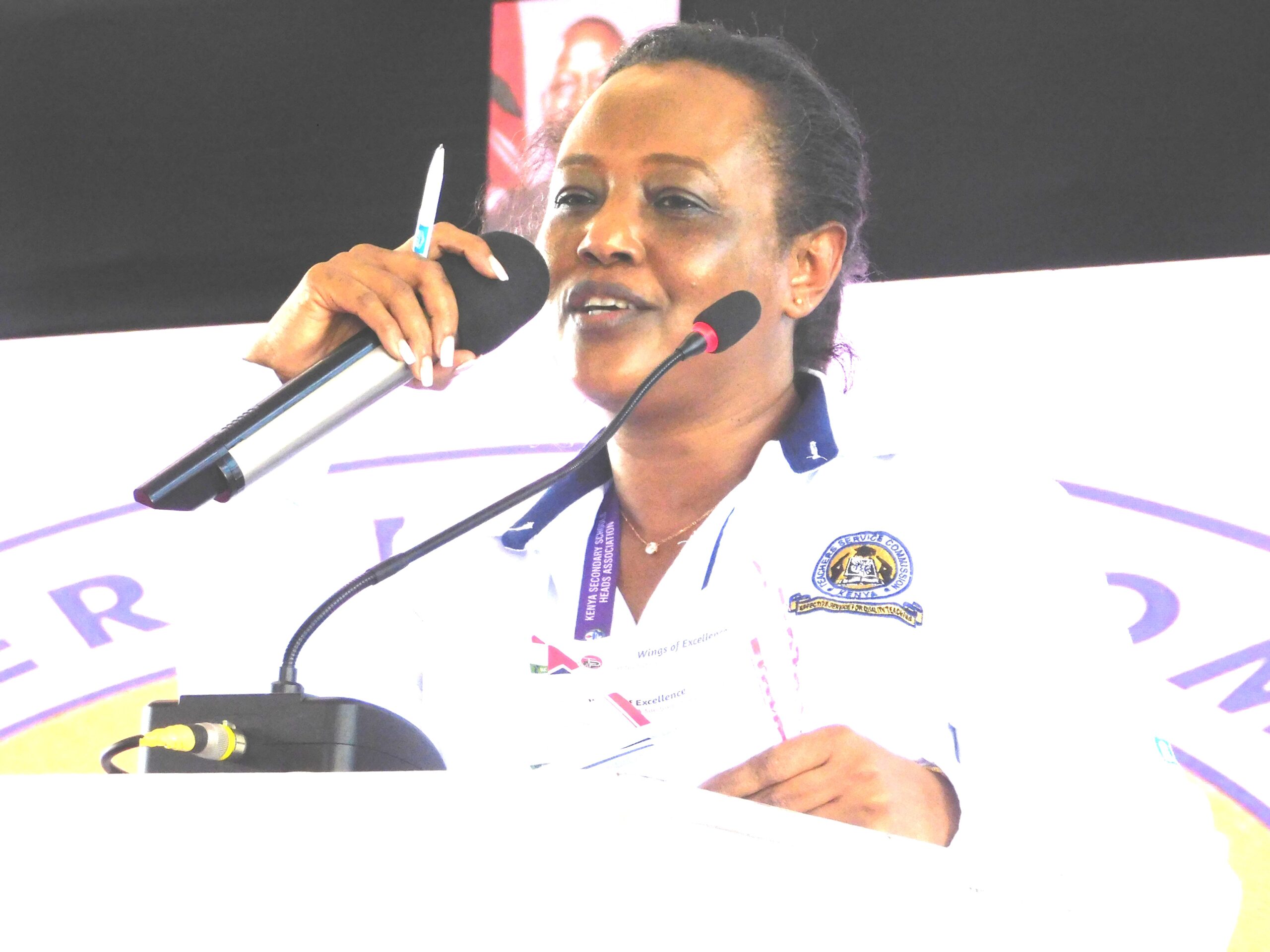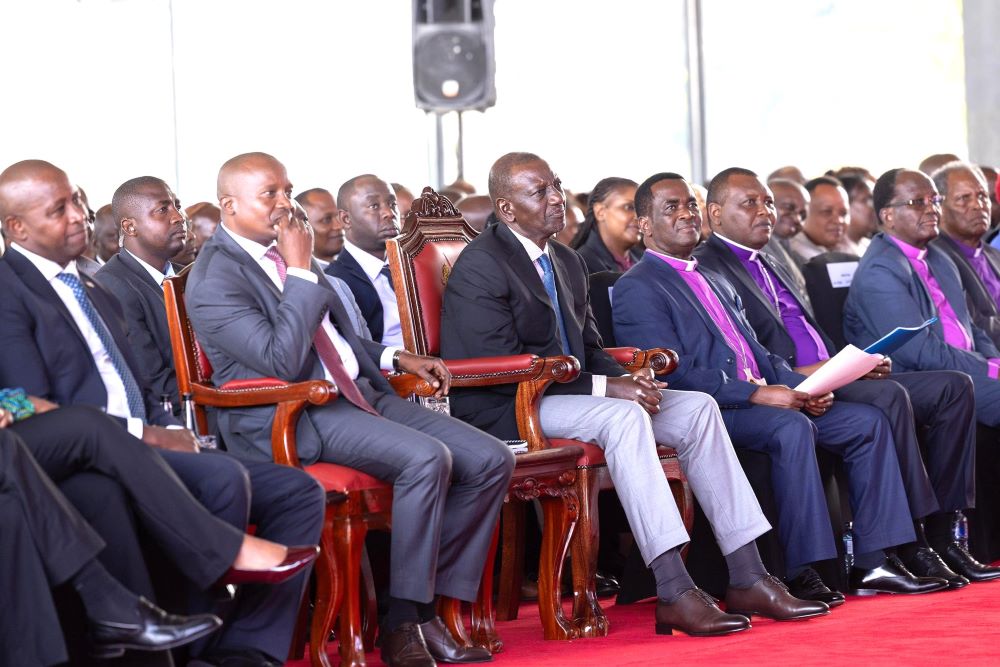By Azael Masese
The Government has been challenged to change the manner in which non-teaching staff in secondary schools are paid their salaries for improved efficiency and accountability.
Kenya Union of Secondary Schools Non Teaching Staff (KUSSNTS) Secretary General Nahason Ndiemae faulted the current arrangement as some staff go for months without pay.
“Though there is a timely disbursement of funds to schools, there is no clear provision on how much Personal Emoluments should be allocated to the non-teaching staff,” he said.
In its absence, Ndiemae noted that the Boards of Management (BOMs) might divert the budgetary allocation resulting in some of them going for more than eight months without pay.
“Despite the meagre salaries the schools’ non-teaching staff receive, the rising inflation notwithstanding, this is delayed for months hence the worst form of slavery we witness in the country,” he said.
Matters are made worse as the employees do not have a scheme of service, thus do not see themselves rising to any rank within the school system.
Speaking to Education News on phone, Ndiemae proposed that the salaries should also be sent to the employees’ personal bank accounts.“The non-teaching staff in our secondary schools are paid in an informal manner as they only have to indicate in a piece of paper, preferably an exercise book that they have been paid,” he said.
This, Ndiemae offered, cannot give a clear picture of the number of employees paid by the school hence prone to abuse.
He further proposed the creation of a central pool where non-teaching staff paid and this create inefficiencies as witnessed in schools.
“We demand that the Ministry of Education do a circular on the same so that the staff pay is treated under a different category and not lumped together,” he stated.
Besides, he called on the implementation of the scheme of service and condition for the staff, saying they are a dejected lot.
“The non-teaching staff play a critical role in the management of the schools and should not be overlooked,” he advised.
An education task force led by Kilemi Mwiria proposed far reaching reforms in the salary structures for the non teaching staff.
The task force report, led by former Assistant Minister for Education Kilemi Mwiria proposed that the non-teaching staff be employed by the Government on permanent and pensionable terms.
Besides, it proposed a scheme of service for the staff notably, the bursar, messenger, grounds men and the secretaries.
The report which was released in 2014 recommended that the highest non-teaching staff be paid Sh41, 000 and the lowest Sh9, 960.
It is estimated that there are about 40,000 non-teaching staff in the country’s public secondary schools.
Non-teaching staff in public secondary schools used to be paid by the Government, but this changed in 1993 and the responsibility was transferred to the Boards of Governors (BOGs).
With Free Secondary Education, parents no longer pay the non-teaching staff through the fees collected as the Government takes care of that through capitation.
“A number of the proposals have been implemented but not the one touching on the salaries of the staff as they are still underpaid,” Ndiemae said.
The report proposed qualifications for each category recommended that recruitment of staff should be pegged on students’ enrollment and the number of streams per school.
It proposed that a secretary in public secondary schools was proposed to earn a maximum salary of Sh24, 662 per month.
Their minimum pay was pegged at Sh12, 510 and proposed that all secretaries fall under job group F, G and H.School bursars were to fall under job group K and to earn a maximum of Sh41, 590 per month as their minimum pay was set at Sh31,020.
These staff were expected to have a qualification of Certified Public Accountant (CPA) III.
Office messengers were to fall under job group D and with a take home minimum pay of Sh10, 380 and a maximum salary of Sh11, 370.
Messengers were to have a basic requirement of Form Four academic papers.
It was suggested catering staff earn a maximum of Sh21, 304 and fall under job F and G.
Their minimum pay was set at Sh12, 510 and required to possess a Kenya National Examination Council certificate in catering.
Cooks were to take home Sh11,370 and a minimum pay of Sh9,660 per month. They were to fall under job group C and D and would be expected to have Form Four qualification.
Under the proposal, Information and Communication Technology (ICT) technicians were categorized in job group F and G with a maximum pay of Sh21, 304.
Their basic pay was capped at Sh12, 510. Kitchen hand staffs were assigned job group C and D, with a maximum salary of Sh10, 380 and minimum pay of Sh9, 660.
Those with Standard Eight certificates would qualify.
The school nurse was to take home a maximum pay of Sh24, 662 per month. Nurses were to fall under job group H and J and would produce a certificate in nursing for employment.
Storekeepers were recommended to fall under job group F, G and H. They were to be paid a minimum salary of Sh12,510 and a maximum of Sh21,304.
The report proposes that security personnel be paid Sh11, 370 on the upper scale and Sh9, 660 on the lowest scale. Staffs under this category were to fall under job group C and D. Their qualification was proposed to be Standard Eight certificates.
Under the recommendations, a storekeeper should have a certificate in procurement or supplies management.
They were to fall under job group F, G and H, with a maximum salary of Sh21, 304 and a minimum salary of Sh12,510. Grounds men or women, who were to be holders of Form Four certificates were to be paid Sh11,370 per month, with the minimum set at Sh9,660.
Laboratory technicians were projected to earn Sh21, 304 per month and Sh12, 510 on the lowest scale.






